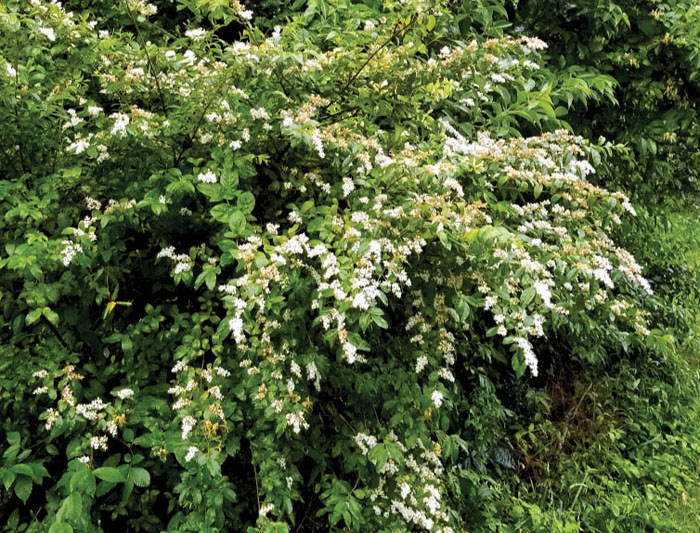Darrell Blackwelder: Chinese privet is an invasive shrub
Published 12:00 am Sunday, May 17, 2020

- Chinese privet. Photo by Darrell Blackwelder.
Along the edges of woods and fencerows throughout the county you may have noticed shrubs covered with showy white blooms. Chinese privet (Ligustrum sinense) is now in full bloom and their blooms are as colorful as I’ve seen in years. Arriving in the mid-1800s from China, the fast-growing shrub was used as hedges in landscapes. There are newer cultivars still implemented into landscapes becoming a standard landscape shrub in the 1950s. Unfortunately, early hedge plantings have evolved into one of the worst invasives in the Southeast. These shrubs have the ability to adapt to different light conditions and vast array of soil types. It also thrives in wet to dry habitats and very tolerant to pollution. This shrub has become a very problematic invasive outcompeting and displacing native vegetation in the South.
The flowers are very aromatic producing an odor that many find unappealing. The flowers produce huge quantities of small black fruit (drupes) maturing in August and September. Another downside of the plant is the fruit is poisonous, especially to dogs. The fruits readily consumed by birds contribute to the infestation throughout the county. The plant also has ability to reproduce vigorously by forming suckers.
Seedlings can be effectively controlled by hand-pulling; however, larger plants should be sprayed with glyphosate or brush killers containing triclopyr. Repeated treatments may be needed the next year to control sprouting suckers. Go to https://plants.ces.ncsu.edu/plants/ligustrum-sinense/ for more detailed information about this invasive shrub.
Darrell Blackwelder deblackw@ncsu.edu is the retired horticulture agent and director with the North Carolina Cooperative Extension Service in Rowan County.



